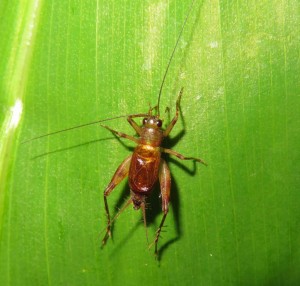
The AGA grants EECG Research Awards each year to graduate and post-doctoral researchers who are at a critical point in their research, where additional funds would allow them to conclude their research project and prepare it for publication.
45 students and post-docs applied for funding this year. As a result of cost-savings from covid-related cancellations of in-person meetings, the AGA Council voted to redirect funds to enable support of a greater number of worthy scholars in 2021 than in previous years, supporting a total of 9 PhD students and 4 postdocs.
EECG awardees get the opportunity to hone their science communication through writing three posts over their grant tenure for the AGA Blog. In the first in the series, our EECG awardees write about their research and their interests as an 'embarkation'. Watch for these blog posts this spring!
We are pleased to announce the recipients of the 2021 EECG Awards:
1. $6,000 to Mallory Hagadorn (Utah State University): The genomic underpinnings of life-history variation
2. $4,115 to Jessica Judson (Iowa State University): Using neuromolecular and neurodevelopmental approaches to characterize maternal brains associated with cooperative behaviors in bumble bees
3. $6,000 to Jeremy Davis (University of Kentucky): Population genomics of a recent rapid host-shift in the introduced pine sawfly Diprion similis
4. $5,950 to Matt Gibson (Indiana University): Uncovering the sources of adaptive genetic variation in wild tomato along a replicated coastal-inland ecogeographic gradient
5. $6,000 to Sasha Bishop (University of Michigan): Identifying candidate loci and spatially variable selection in the face of anthropogenic climate change using a common morning glory system
6. $5,197 to Michael Hogan (Florida State University): Chemoperception intersects trait evolution and biological context in rattlesnakes
7. $5,975 to Elizabeth Lombardi (Cornell University): Landscape genomics and virus diversity in alpine plants: predicting host-virus disease outcomes in changing environments
8. $5,058 to Chris Robinson (University of Virginia): Hormonal regulation of gene expression underlying evolutionary loss of sex-specific coloration
9. $5,990 to Thea Rogers (Sheffield University, UK): Variation in sex-biased alternative splicing over development
10. $5,057 to Hayden Waller (Cornell University): Investigating parallel behavioral evolution in the Laupala species radiation
11. $5,898 to Rachel Moran (University of Minnesota): The genomic architecture of reinforcement between and within species
12. $6,000 to Maria Torres Sanchez (University of Florida): Seasonal variation in amphibian resistance to chytrid fungi: the role of host plasticity and adaptation
13. $6,000 to Julia Riley (Dalhousie University, Canada): Scaly Sociality

Check out our Editor's Choice article by Zimmerman et al., examining the great plains bison at American Prarie, while our cover this issue is courtesy of Winter et al., who lay out the best assembly yet of the beautiful Ural owl
AGA member have elected a new President and Councilors.
Jeff Good
Katie Lotterhos
Al Roca
Christine Edwards
Klaus-Peter Koepfli
Michael Russello
Nevé Baker
Apply now for an AGA
Any questions? Contact the Managing Editor at theaga@theaga.org.